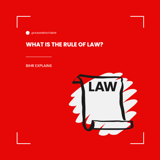The First-Tier Tribunal (a lower court) examined the right to private life of two children, of whom had additional needs. The children, known as B and C, were born in the UK to parents who had acquired British citizenship. His father, A, was sentenced to two years in prison for possession of criminal property. The Home Office then decided to revoke A’s British citizenship and deport him to Albania, where he was originally from. This meant B and C would either have to go to Albania with their father or remain in the UK without him. They argued that this would breach their human rights to private and family life. While the Tribunal said this was not a breach of B’s human rights as she could go to Albania with her father, it decided that it would be a breach of C’s human rights because C’s additional needs would make it hard for him to live in Albania. The Tribunal seemed to base this on evidence that C experienced episodes of dysregulation and sensory issues, particularly in relation to food and clothing. However, the only example the Tribunal provided in its assessment was that C would not eat the types of chicken nuggets available abroad.
The Home Office argued that the Tribunal did not have enough evidence to say that deporting C’s father would breach his human rights and that its decision was “irrational”. The case therefore went to the Upper Tribunal (a higher court) who agreed with the Home Office. It set aside the decision made by the lower court, meaning that it is not valid and the decision has to be made again by a new court.
This case is an example of the legal system at work and also demonstrates the way that the right to private and family life works in practice; as a non-absolute right, it can be restricted in cases where it is lawful, legitimate and proportionate to do so. Yet this case and others like it have been oversimplified and misrepresented by the media and parliamentarians alike, as a way to attack legal protections rather than to explain them.




